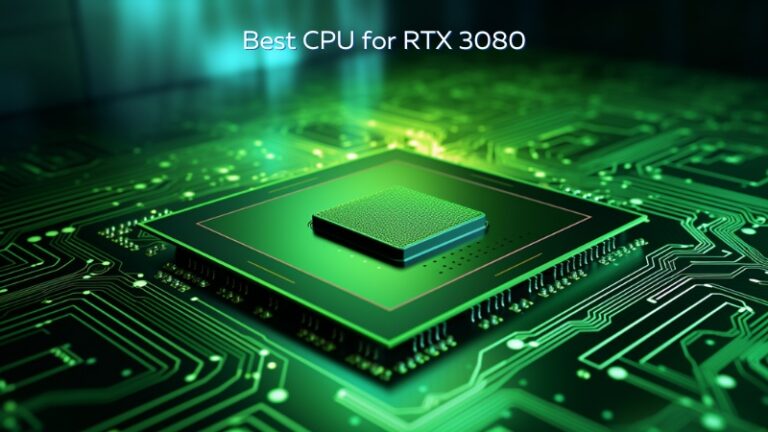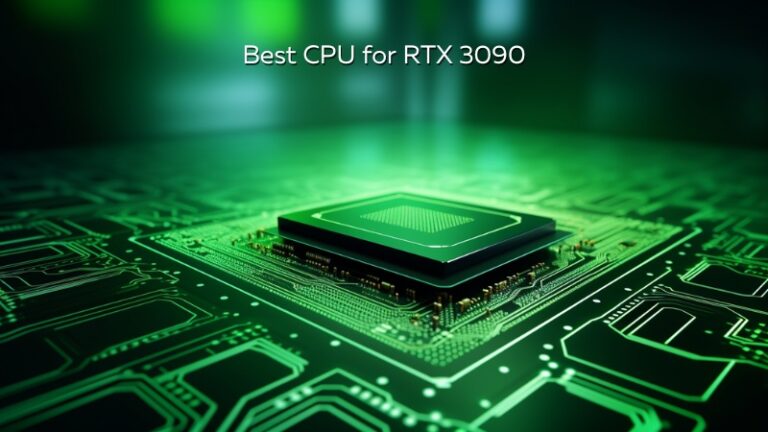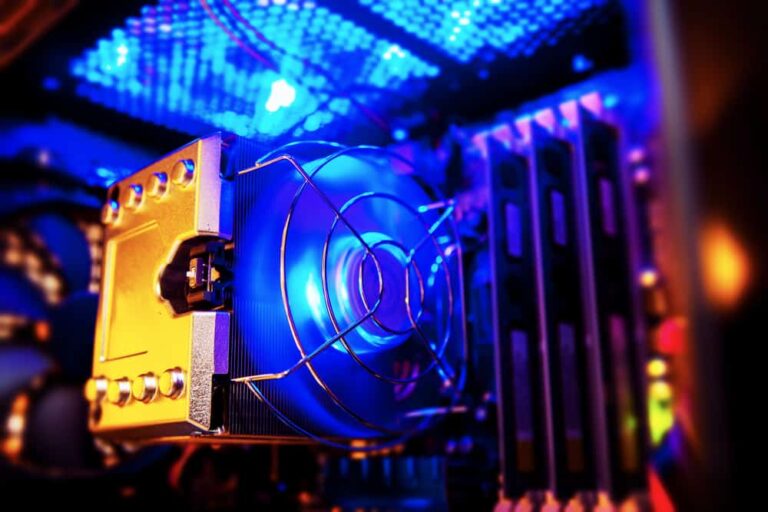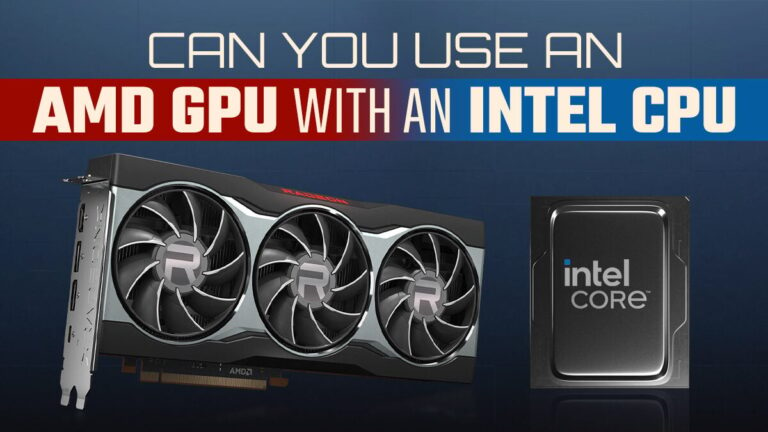Should I Upgrade CPU Or GPU First?
You should upgrade the CPU or GPU first depending on your specific needs and use cases. Now, let’s dive into a brief explanation.
Upgrading your computer’s hardware can greatly improve its performance and overall user experience.
However, deciding whether to upgrade the CPU or GPU first depends on what you primarily use your computer for.
If you engage in tasks such as video editing, 3D rendering, or content creation that require substantial computing power, upgrading the CPU may be the better choice.
On the other hand, if you are a passionate gamer or work with graphics-intensive applications, upgrading the GPU can significantly enhance your gaming experience or improve software performance.
Understanding your specific needs and considerations will help you make an informed decision on whether to upgrade your CPU or GPU first.
Understanding The Importance Of Cpu And Gpu In Your System
Upgrading your CPU or GPU can significantly improve your system’s performance.
It’s important to understand the specific needs of your tasks or applications to determine which component should be upgraded first.
Consider factors like multitasking, gaming, and video rendering to make an informed choice.
The Roles Of CPU and GPU in Computer Performance
- CPU:
- The CPU, or Central Processing Unit, is often referred to as the “brain” of the computer. It is responsible for executing instructions and performing calculations.
- The CPU plays a crucial role in overall system performance, as it determines the speed and efficiency at which tasks are completed.
- It handles essential tasks such as operating system functions, running software applications, and carrying out general computing activities.
- GPU:
- The GPU, or Graphics Processing Unit, is primarily responsible for rendering and displaying graphics on your computer screen.
- While the GPU is essential for gaming and other graphically-intensive tasks, it also impacts other applications that rely on visual elements, such as video editing and 3D modeling.
- Its parallel processing capabilities allow for faster image rendering, smoother graphics, and improved visual effects.
How CPU and GPU Impact Different Tasks And Applications
- CPU Impact:
- Multi-core CPUs are suitable for multitasking, enabling smoother performance when running multiple applications simultaneously.
- A powerful CPU is advantageous for tasks that require intensive computation, such as video encoding, 3D rendering, and complex simulations.
- It also determines the speed of software execution and responsiveness, contributing to a snappy and fluid user experience.
- GPU Impact:
- GPUs are crucial for gaming, as they handle all the visual processing and improve frame rates, allowing for a more immersive experience.
- Video editing and rendering software heavily rely on the GPU for real-time previewing, fast encoding, and rendering of high-resolution videos.
- Designers, animators, and 3D artists benefit greatly from GPUs as they accelerate rendering times and provide better performance in specialized applications.
Factors To Consider When Deciding To Upgrade CPU or GPU
- Compatibility:
- Ensure that the new CPU or GPU is compatible with the existing hardware components, such as the motherboard and power supply.
- Check for any necessary BIOS updates or additional connectors required for installation.
- Budget:
- Determine your budget and assess whether upgrading the CPU or GPU is a more cost-effective choice.
- Consider the price-performance ratio and balance between the two upgrades.
- Intended Use:
- Identify your primary use for the computer to prioritize the upgrade. For gamers, a GPU upgrade might be more beneficial, while content creators may benefit more from a CPU upgrade.
- Bottlenecks:
- Identify the current bottlenecks in your system. Analyze whether your CPU or GPU is causing performance limitations in the tasks you frequently perform.
- Upgrade the component responsible for the bottleneck to achieve significant performance improvements.
- Future-proofing:
- Evaluate your long-term goals and consider which component will become outdated first.
- If planning to upgrade other hardware components in the near future, choose the upgrade that complements those future upgrades best.
Making an informed decision about whether to upgrade the CPU or GPU should be based on considering factors such as compatibility, budget, intended use, bottlenecks, and future-proofing.
Understanding the role of each component and its impact on various tasks and applications will guide you in making the best choice to enhance your overall computer performance.
Evaluating The Current Performance Of Your CPU and GPU
Evaluate the performance of your CPU and GPU to determine whether to upgrade first. Assess their current capabilities and consider which component is bottlenecking your system.
Upgrade the CPU if you need better processing power or the GPU for improved graphics performance.
Make an informed decision based on your specific needs.
When it comes to deciding whether to upgrade your CPU or GPU first, it’s crucial to evaluate the current performance of both components.
Understanding how your CPU and GPU are performing will help you determine which one is in more need of an upgrade.
Here are some key steps to assess the performance of your CPU and GPU:
Checking CPU and GPU Specifications:
- Check the specifications of your CPU and GPU by referring to their respective model names and numbers.
- Take note of the core count, clock speed, and cache size of your CPU.
- Pay attention to the VRAM, clock speed, and CUDA or Stream processors of your GPU.
Monitoring CPU and GPU Usage During Various Tasks:
- Observe the CPU and GPU usage while performing different tasks such as gaming, video editing, or 3D rendering.
- Use monitoring software like MSI Afterburner or Task Manager to analyze the usage.
- Keep an eye on the CPU and GPU temperatures as well, as high temperatures can indicate performance bottlenecks.
Identifying Bottlenecks And Performance Limitations:
- Look for any disparities between CPU and GPU usage. If one component is consistently maxed out while the other is not, it may be a sign of an imbalance.
- Consider the type of tasks you primarily perform and identify if they are more CPU or GPU-intensive.
- Evaluate the overall performance of your system and assess whether specific applications are running slower than desired due to CPU or GPU limitations.
By checking the specifications, monitoring usage, and identifying performance limitations, you can gain a better understanding of which component, CPU or GPU, might benefit most from an upgrade.
Remember, the decision to upgrade ultimately depends on your specific needs and usage patterns.
Assessing Your Specific Needs And Priorities
When deciding whether to upgrade your CPU or GPU first, it is important to assess your specific needs and priorities.
Consider factors such as the purpose of your computer, the software you use, and your budget to make an informed decision on which component to upgrade first.
When it comes to upgrading your computer, one of the key decisions you’ll need to make is whether to upgrade your CPU or GPU first.
To make an informed choice, it’s important to assess your specific needs and priorities. Consider the following factors:
Determining Your Primary Computer Usage:
- Start by identifying your primary usage for the computer. Are you mainly using it for gaming, video editing, programming, or other resource-intensive tasks? This will help you understand which component – CPU or GPU – plays a more crucial role in enhancing your performance and overall user experience.
Researching CPU and GPU Requirements For Your Specific Applications:
- Research the CPU and GPU requirements for the applications and software you use most frequently. Each program has different demands, and by understanding those requirements, you can determine which component would benefit you more by upgrading first. Look for recommended system specifications or consult the official documentation or forums for the applications you use.
Considering Budget Constraints And Future Upgrade Possibilities:
- It’s crucial to consider your budget constraints when deciding which component to upgrade first. CPUs and GPUs vary in price, and you might not always be able to afford the top-of-the-line options. Additionally, consider future upgrade possibilities. If you’re likely to upgrade multiple components in the near future, think about how your choice impacts those potential upgrades.
By carefully assessing your specific needs and priorities, you can make an informed decision on whether to upgrade your CPU or GPU first.
Remember, there’s no one-size-fits-all answer, as it depends on your usage, application requirements, budget, and future plans.
Weighing The Benefits Of Upgrading CPU First
Wondering whether to upgrade your CPU or GPU first? Consider the benefits of upgrading your CPU, from improved multitasking capabilities to faster overall performance.
It’s a decision that can have a significant impact on your computer’s processing power. Choose wisely!
When it comes to upgrading your computer’s performance, deciding whether to upgrade your CPU or GPU first can be a tough decision.
Both components play crucial roles in your system, but let’s explore the benefits of upgrading your CPU first.
Exploring How CPU Affects General Multitasking And System Responsiveness:
- Improved multitasking capabilities: Upgrading your CPU can enhance your computer’s ability to handle multiple tasks simultaneously. With a more powerful CPU, you can run demanding applications, browse the internet, and stream media without experiencing sluggish performance.
- Faster response times: A better CPU can significantly improve system responsiveness. It reduces lag, ensures smooth transitions, and minimizes delays when opening or switching between programs. Your computer becomes more efficient at executing commands, leading to a more enjoyable user experience.
Analyzing CPU Requirements For Complex Tasks And Software:
- Increased processing power: CPU upgrades provide a boost in processing capabilities, enabling your computer to handle complex tasks more efficiently. Whether you’re rendering high-resolution videos or running resource-intensive software like virtual machines or graphic design applications, an upgraded CPU can provide the necessary horsepower.
- Enhanced software compatibility: Certain software applications have specific CPU requirements. Upgrading your CPU ensures compatibility with the latest software versions and allows you to take advantage of performance-optimized features. You won’t have to worry about your CPU holding you back from utilizing advanced software functionalities.
Understanding The Potential Impact On Overall System Performance:
- Balanced system performance: Upgrading your CPU helps maintain a balanced hardware configuration. If your CPU is outdated while your GPU is relatively new, your computer may suffer from a bottleneck. Upgrading the CPU first ensures your system components are in harmony, maximizing overall performance.
- Future-proofing your system: Investing in a powerful CPU now can extend the lifespan of your computer. As software and applications become more demanding, your upgraded CPU can handle the increased requirements for years to come. It eliminates the need for immediate CPU upgrades when the need arises, saving you time and money in the long run.
By upgrading your CPU first, you can optimize multitasking capabilities, improve system responsiveness, handle complex tasks and software efficiently, and enhance the overall performance of your system.
Evaluating your specific needs and considering the benefits mentioned above will help you make an informed decision that aligns with your requirements.
Upgrade wisely and enjoy a smoother and more powerful computing experience.
Considering The Advantages Of Upgrading GPU First
Considering the advantages of upgrading the GPU first, it is recommended to prioritize the GPU over the CPU for enhanced graphics performance and gaming experience.
With a more powerful graphics processing unit, users can enjoy smoother gameplay, better visual quality, and improved rendering capabilities.
Examining The Role Of GPU in Gaming And Graphical Performance
- A GPU, or Graphics Processing Unit, is a crucial component in a computer that handles rendering graphics and visuals for gaming and other graphically intensive tasks.
- The GPU works in conjunction with the CPU to process and display images, videos, and animations on your screen.
- By offloading the graphical workload from the CPU, the GPU allows for smoother and more realistic gaming experiences.
- The GPU is responsible for tasks such as rendering textures, shading, and applying visual effects in games, resulting in improved graphics quality.
- It also plays a significant role in accelerating video editing, 3D modeling, and other graphic-intensive applications, boosting performance and efficiency.
Assessing The Requirements Of Demanding Games And Graphic-Intensive Applications
- Demanding games and graphic-intensive applications often have specific GPU requirements to ensure smooth gameplay and optimal performance.
- High-end games with advanced graphics, such as AAA titles, usually require a powerful GPU to achieve desirable frame rates and visuals.
- Graphic-intensive applications like video editing software, CAD software, and 3D modeling software heavily rely on the GPU to handle complex calculations and render lifelike visuals efficiently.
- Upgrading your GPU can help meet the minimum system requirements for such demanding games and applications, ensuring a seamless experience without lags or slowdowns.
- Assessing the recommended GPU specifications for the games or applications you use can guide you in determining whether upgrading your GPU is a priority.
Evaluating The Impact On Visuals, Frame Rates, And Gaming Experience
- Upgrading your GPU can have a significant impact on the quality of visuals, frame rates, and overall gaming experience.
- A more powerful GPU allows for higher resolutions, better textures, and more detailed graphics, resulting in visually stunning gameplay.
- With an upgraded GPU, you can enjoy smoother frame rates, reducing instances of stuttering and lag during gameplay.
- Certain features like ray tracing, which creates realistic lighting and reflections, are only available on newer and more advanced GPUs.
- By upgrading your GPU, you can maximize the potential of your gaming setup and enhance your overall gaming experience.
Upgrading your GPU first can bring noticeable improvements to gaming and graphical performance.
The GPU’s role in rendering graphics, its requirements for demanding games and applications, and its impact on visuals and frame rates make it a crucial component to consider upgrading.
By investing in a more powerful GPU, you can enjoy higher-quality graphics, smoother gameplay, and an overall enhanced gaming experience.
Compatibility And Performance Considerations
Considering compatibility and performance, deciding whether to upgrade your CPU or GPU first requires careful consideration.
Evaluate your current system’s limitations and identify the component that will have the greatest impact on meeting your specific needs.
Investigating Compatibility Between CPU and GPU:
- Before deciding whether to upgrade your CPU or GPU first, it is crucial to consider the compatibility between these two components. Here are some key points to investigate:
- Socket compatibility: Check if the new CPU you are considering supports the same socket type as your current motherboard. If not, upgrading the CPU might require a motherboard replacement as well, increasing the overall cost.
- Power requirements: Ensure that your power supply is sufficient to handle the power demands of the upgraded CPU and GPU. Upgrading to a more powerful CPU or GPU may require a higher wattage power supply to avoid stability issues.
- Bottleneck potential: Determine if there is any significant bottleneck between your current CPU and GPU. A bottleneck occurs when one component is significantly slower than another, limiting overall system performance. Upgrading the component causing the bottleneck will yield the most noticeable performance improvement.
Understanding The Limitations Of Outdated Components:
- Outdated components can hinder the overall performance of your system. Here are a few limitations to consider when deciding between upgrading the CPU or GPU first:
- CPU-bound applications: If you primarily use CPU-bound applications like video editing software or CPU-intensive games, upgrading the CPU first would result in better performance gains. These applications heavily rely on the CPU’s processing power.
- GPU-bound applications: On the other hand, if you primarily use GPU-bound applications like graphic design software or games that heavily rely on graphics processing, upgrading the GPU first would provide more significant performance improvements.
- System performance balance: It is important to maintain a balanced system for optimal performance. Upgrading one component without considering the other might create a bottleneck or underutilization. Investing in a balance between CPU and GPU upgrades ensures that both components work in conjunction, maximizing overall performance.
Ensuring A Balanced System Upgrade For Optimal Performance:
- Upgrading your system for optimal performance requires careful consideration of both CPU and GPU. Here are some essential points to ensure a balanced system upgrade:
- Budget allocation: Determine your budget and allocate it wisely between the CPU and GPU upgrades. Consider the current balance of your system and invest accordingly to avoid creating a significant performance imbalance.
- Future-proofing: When choosing the CPU and GPU upgrades, consider their longevity and compatibility with future technologies. Opt for components that will remain relevant for a reasonable period, minimizing the need for immediate upgrades.
- System requirements: Assess the system requirements of the applications you intend to use. Ensure that the upgraded CPU and GPU meet or exceed these requirements to ensure smooth performance and avoid potential compatibility issues.
- Consider seeking professional advice: If you are unsure about the compatibility or performance implications of upgrading your CPU or GPU, consider consulting with a professional. They can provide tailored advice based on your specific system configuration and needs.
By carefully investigating compatibility, understanding the limitations of outdated components, and ensuring a balanced system upgrade, you can make an informed decision on whether to upgrade your CPU or GPU first.
Remember, the ultimate goal is to achieve an optimized system that delivers exceptional performance for your specific needs.
Prioritizing Upgrades Based On Your Budget And Future Plans
When considering upgrades based on your budget and future plans, it’s important to prioritize either the CPU or GPU carefully.
Assess your needs and determine which component will provide the most significant performance boost for your specific requirements and budget constraints.
Choose wisely to optimize your system’s capabilities for the future.
Estimating the cost of CPU and GPU upgrades:
- CPU upgrades:
- Entry-level CPUs typically cost around $100 to $200, while high-end CPUs can range from $300 to $500 or more.
- Do some research to find the suitable CPU for your needs and budget.
- GPU upgrades:
- Budget-friendly GPUs can be found between $150 and $300, offering decent performance for casual gamers.
- If you’re looking for more power, high-end GPUs can cost anywhere from $400 to $1000 or even more.
Weighing the potential performance gains against budget constraints:
- CPU upgrades:
- Upgrading your CPU can provide a significant boost to multitasking capabilities and overall system performance.
- However, if your primary focus is gaming, investing in a high-end GPU can often result in more noticeable improvements.
- Consider your usage patterns and prioritize accordingly.
- GPU upgrades:
- A GPU upgrade can enhance gaming performance, allowing you to enjoy smoother frame rates and higher graphics settings.
- If you’re using applications that heavily rely on GPU rendering, such as video editing or 3D modeling software, a GPU upgrade might be more beneficial.
- Evaluate your needs and determine which component will have a bigger impact on your desired activities.
Considering upgrade paths and compatibility for future expansion:
- CPU upgrades:
- Before upgrading your CPU, ensure that your motherboard is compatible with the new processor.
- Research compatible models and consider future-proofing your system by opting for a motherboard that supports newer CPU generations.
- GPU upgrades:
- Ensure that your power supply unit (PSU) can handle the power requirements of the new GPU.
- Check the physical dimensions of the GPU and the available space in your case to avoid compatibility issues.
- Keep an eye on emerging technologies and future game requirements to make an informed decision.
By taking into account the estimated cost of CPU and GPU upgrades, weighing potential performance gains against budget constraints, and considering upgrade paths and compatibility for future expansion, you can make an informed decision about whether to upgrade your CPU or GPU first.
Remember to assess your specific needs, prioritize accordingly, and plan for the future to maximize the longevity and performance of your system.
Final Decision: Upgrading CPU or GPU First
Upgrade your CPU or GPU first? Find out the best decision for your needs with this helpful guide on prioritizing upgrades for better performance and a seamless gaming experience.
When it comes to upgrading your computer’s performance, one of the crucial decisions you’ll face is whether to prioritize upgrading your CPU or GPU.
To make an informed decision, there are a few key factors you should consider.
By analyzing the overall requirements of your specific use case, evaluating the performance gains and cost-effectiveness of each upgrade, and aligning your decision with your priorities and future plans, you’ll be able to determine which component to upgrade first.
Considering The Overall Requirements Of Your Specific Use Case:
- Identify your primary tasks: Determine the main purpose of your computer usage, such as gaming, video editing, graphic design, or programming.
- Research software requirements: Understand the recommended specifications of the software you frequently use for your tasks.
- Evaluate the current performance: Assess whether your CPU or GPU is currently the bottleneck for your desired tasks.
- Future upgrade plans: Consider if you plan to upgrade one component at a time or both simultaneously.
Analyzing The Performance Gains And Cost-Effectiveness Of Each Upgrade:
- CPU upgrade benefits: Upgrading your CPU can significantly enhance multitasking capabilities, improve rendering speed, and boost overall system performance.
- GPU upgrade advantages: A GPU upgrade can deliver better graphics quality, smoother gaming experiences, and increased rendering speeds for specialized tasks like 3D modeling and video editing.
- Cost considerations: Compare the prices of CPUs and GPUs within your budget range, weighing their performance benefits against the expense.
Making An Informed Decision Based On Your Priorities And Future Plans:
- Priority-based approach: If your primary focus is gaming, a GPU upgrade may provide a noticeable improvement in graphics quality and performance.
- Task-oriented decision: If you prioritize tasks like video editing or 3D rendering, upgrading your CPU could result in significant performance gains.
- Long-term perspective: Consider your future plans and how they might influence your component upgrade path. For example, if you plan to upgrade your CPU in the near future, focusing on the GPU for now may be a wiser choice.
Remember, the decision of whether to upgrade your CPU or GPU first depends on your specific needs and circumstances.
Take into account your intended use, analyze the performance gains and cost-effectiveness, and make an informed decision that aligns with your priorities and future plans.
Upgrading either component will undoubtedly boost your computer’s performance and enhance your overall user experience.

Credit: computerinfobits.com
Frequently Asked Questions On Should I Upgrade CPU or GPU First?
Should I Upgrade CPU or GPU first For Gaming?
Upgrade GPU first for gaming to improve graphics and performance, followed by CPU.
Should I Upgrade My Cpu If I Upgrade My Gpu?
Yes, upgrading your CPU when upgrading your GPU is recommended for optimal performance.
Is It Better To Upgrade CPU or GPU Reddit?
It depends on your specific needs and budget. Evaluate which component will have the most impact on your desired tasks or games.
What Should I Upgrade On My PC First?
Upgrade your PC’s RAM first as it can significantly improve performance.
Conclusion
Whether to upgrade your CPU or GPU first ultimately depends on your specific needs and preferences.
If you prioritize gaming and want to improve graphical performance, upgrading your GPU may be the more meaningful choice.
On the other hand, if you frequently engage in CPU-intensive tasks such as video editing or rendering, upgrading your CPU could significantly enhance your overall system performance.
It’s vital to assess the current performance bottlenecks in your system and evaluate how an upgrade will address those limitations best.
Consider your budget, the compatibility of new components with your existing setup, and the future-proofing potential of each upgrade.
Additionally, always remember to research and compare different CPUs and GPUs to make an informed decision that aligns with your requirements.
By carefully considering these factors, you can optimize your computer’s performance and ensure a seamless user experience.






